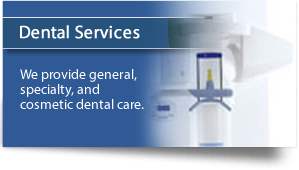Frequently Asked Questions
What types of prostheses are available?
A single prosthesis (crown) is used to replace one missing tooth – each prosthetic tooth attaches to its own implant. A fixed partial prosthesis (fixed bridge) can replace two or more teeth and may require only two or three implants. A complete dental prosthesis replaces all the teeth in your upper or lower jaw. This may be either fixed or removable. The number of implants varies depending upon which type of complete prosthesis (removable or fixed) is recommended. A removable prosthesis (called an overdenture) attaches to a bar or ball in socket attachments, whereas a fixed prosthesis is permanent and removable only by the dentist.
Wendel Family Dental Centre performs in-office implant surgery. In-patient hospital implant surgery is for patients who have special medical or anesthetic needs, or for those who need extensive bone grafting from the jaw, hip or tibia.
Why dental implants?
Once you learn about dental implants, you finally realize there is a way to improve your life. When you lose several teeth – whether it’s a new situation or something you have lived with for years – chances are you have never become fully accustomed to losing such a vital part of yourself.
Dental implants can be your doorway to renewed self-confidence and peace of mind. A Swedish scientist and orthopedic surgeon, Dr. Per-Ingvar Branemark, developed this concept for oral rehabilitation more than thirty-five years ago. With his pioneering research, Dr. Branemark opened the door to a lifetime of renewed comfort and self-confidence for millions of individuals facing the frustration and embarrassment of tooth loss.
Why would you select dental implants over more traditional types of restorations?
There are several reasons: Why sacrifice the structure of surrounding good teeth to bridge a space? In addition, removing a denture or a “partial” at night may be inconvenient, not to mention that dentures that slip can be uncomfortable and rather embarrassing.
Are you a candidate for implants?
If you are considering implants, your mouth must be examined thoroughly and your medical and dental history reviewed. If your mouth is not ideal for implants, ways to improve the outcome, such as bone grafting, may be recommended.
Do implants need special care?
Once the implants are in place, they will serve you well for many years if you take care of them and keep your mouth healthy. This means taking the time for good oral hygiene (brushing and flossing) and keeping regular appointments with your dental specialists.

